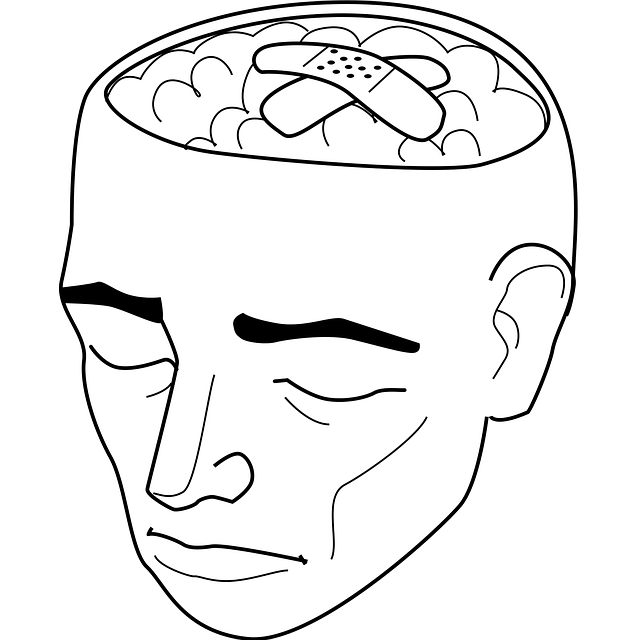Lakewood Trauma Therapy offers specialized emotion regulation techniques addressing trauma roots for improved mental well-being. Employing evidence-based methods like CBT and EMDR, it safely processes past traumas, reducing their impact on present-day emotional responses. This approach is beneficial for public awareness campaigns, healthcare provider training, and stress management workshops, fostering a culture of mental well-being through trauma-informed care. By learning to manage emotions effectively, individuals gain control over their lives, leveraging mindfulness, self-care practices, and community outreach for enhanced mental wellness and emotional resilience. Lakewood Trauma Therapy guides clients in translating theoretical teachings into practical daily applications, leading to improved stress response management, inner strength, and healthier relationships with emotions.
Emotion regulation is a vital skill, enabling individuals to navigate life’s challenges with resilience and well-being. This article explores effective techniques, focusing on the beneficial role of Lakewood Trauma Therapy in teaching these strategies. We delve into understanding emotion regulation, its profound impacts, and how this therapy provides practical tools for managing emotions. Discover actionable strategies for everyday application, empowering you to integrate these teachings into your daily life seamlessly.
- Understanding Emotion Regulation and its Benefits
- The Role of Lakewood Trauma Therapy in Teaching These Techniques
- Practical Strategies for Effective Emotion Regulation
- Integrating These Teachings into Daily Life
Understanding Emotion Regulation and its Benefits

Understanding emotion regulation is a powerful step towards enhancing mental well-being. It involves recognizing and managing one’s emotional responses effectively, allowing individuals to navigate life’s challenges with greater resilience. Through Lakewood Trauma Therapy, people can learn to identify triggers, interpret feelings, and employ healthy coping strategies. This process equips them to respond rather than react to stressful situations, fostering a sense of control and emotional stability.
By mastering emotion regulation techniques, individuals not only mitigate the risk of depression prevention but also discover effective stress reduction methods. These skills support the emotional healing processes, enabling people to lead more fulfilling lives. Whether facing everyday stressors or dealing with complex trauma, understanding and regulating emotions provide a foundation for personal growth and improved mental health outcomes.
The Role of Lakewood Trauma Therapy in Teaching These Techniques

Lakewood Trauma Therapy plays a pivotal role in teaching emotion regulation techniques by addressing the root causes of emotional distress often stemming from traumatic experiences. This therapeutic approach, deeply rooted in understanding and healing trauma, equips individuals with effective coping mechanisms to manage intense emotions. Through various modalities, including cognitive behavioral therapy and eye movement desensitization and reprocessing (EMDR), Lakewood Trauma Therapy helps clients process past traumas safely, reducing their impact on present-day emotional responses.
This specialized treatment is particularly valuable in the context of Public Awareness Campaigns Development, where educating communities about trauma’s far-reaching effects can foster a culture that prioritizes mental well-being. Moreover, Healthcare Provider Cultural Competency Training benefits from Lakewood Trauma Therapy’s insights, enabling medical professionals to offer more holistic care by recognizing and addressing trauma-related issues. Stress Management Workshops Organization can also incorporate these therapeutic techniques into their programs, providing participants with practical tools to navigate life’s challenges with greater emotional resilience.
Practical Strategies for Effective Emotion Regulation

Learning to manage emotions effectively is a vital skill that can be taught and developed, offering individuals greater control over their lives. In the context of Lakewood Trauma Therapy, practical strategies for emotion regulation involve several techniques tailored to help clients navigate their feelings in healthy ways. One such approach is mindfulness training, which encourages individuals to focus on the present moment, observing emotions without judgment. This practice fosters a sense of detachment, allowing people to respond to rather than react impulsively.
Additionally, Lakewood Trauma Therapy emphasizes the importance of self-care as a cornerstone of emotion regulation. This includes promoting activities like regular exercise, sufficient sleep, and engaging in hobbies that bring joy. Building resilience through community outreach program implementation has also proven effective, where individuals learn to support and uplift each other, creating a sense of belonging and shared purpose. Enhancing mental wellness goes hand in hand with these strategies, as they collectively contribute to an overall healthier emotional landscape.
Integrating These Teachings into Daily Life

Integrating emotion regulation techniques into daily life is a crucial step after learning about them. At Lakewood Trauma Therapy, we emphasize practical application, helping individuals translate teachings from theory to practice. This involves adopting coping strategies tailored to individual needs, ensuring emotional well-being in various settings. By regularly practicing mindfulness, for instance, one can enhance self-awareness and better manage responses to stressful situations.
Public Awareness Campaigns Development plays a significant role in promoting these practices among the general public. Education on emotional healing processes empowers individuals to build inner strength and resilience. Through ongoing learning and consistent application, people can foster healthier relationships with their emotions, leading to improved mental health and overall quality of life.
Emotion regulation techniques, when taught effectively, can significantly enhance our ability to navigate life’s challenges. As discussed, Lakewood Trauma Therapy offers a powerful framework through its understanding of emotional responses and their root causes. By integrating practical strategies into daily routines, individuals can foster resilience, improve mental well-being, and cultivate healthier relationships. Embracing these teachings allows us to transform our emotional experiences from debilitating obstacles to manageable aspects of our lives.









